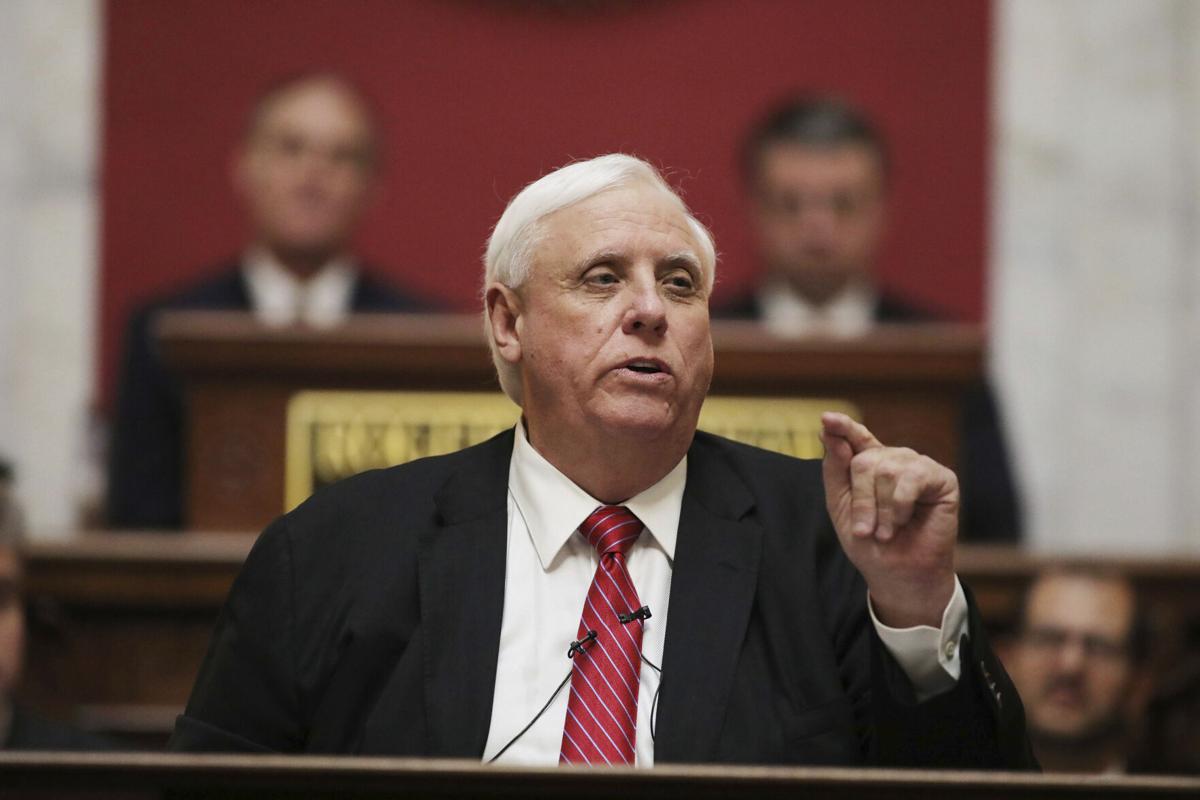West Virginia Governor Backs Up $700 Million Company Debt Amid Lawsuits

By Charles Boothe
June 3, 2021 - Greensill Capital, a private finance firm based in London that is now out of business, was a “bad actor,” WV Gov. Jim Justice said Tuesday, in a saga that has now left the Governor owing $700 million in loans his family’s company obtained from Greensill.
During his pandemic briefing, Justice was responding to an article in the Wall Street Journal on Wednesday that reported he has “guaranteed” the loans.

In this Wednesday, Jan. 8, 2020, file photo, West Virginia Governor Jim Justice delivers his annual State of the State address in the House Chambers at the state capitol, in Charleston, W.Va.
Photo: Chris Jackson
“Yes, I did personally guarantee the loans,” he said. “The loans have always been personally guaranteed. Greensill is the bad actor … We have sued Greensill. We are not going to let Greensill get by with bad stuff.”
Justice, who said he had not read the article but had been briefed on it, and his family own Bluestone Resources, a company based in Roanoke that operates coal mines and other businesses.
“The Russians had Bluestone,” he said of Bluestone Coal, which owned coal mining operations in Southern West Virginia. “It absolutely melted down to nothing and it closed.”
Justice said he purchased Bluestone and the Russian company left numerous liabilities, including taxes and pensions.
“We knew it would take hundreds of millions of dollars from the mess the Russians had left,” he said. “We paid them (the liabilities). We have been rebuilding Bluestone back.”
That is why the money was borrowed, he said, but “out of nowhere” Greensill filed bankruptcy.
Justice said the company, which filed for insolvency in March, met with his son, James C. Justice III, who runs Bluestone, and told him “everything was great and wonderful.”
“Two days later, they declared bankruptcy,” he added. “We did not have one earthly clue.”
The bankruptcy prompted Bluestone to file a lawsuit in New York against Greensill claiming fraud in lending practices.
Justice said he is proud of his son, who has “done a great job,” and as time goes forward “we will continue to do exactly what we did in the past. We will pay our obligations and move forward.”
Greensill is “one bad actor that got caught,” he said. “My family has to deal with it.”
According to the Wall Street Journal, Greensill packaged loans and sold them to investment funds owned by Credit Suisse Group, a Swiss bank that froze the investments funds after the bankruptcy and is now in talks with Bluestone and other borrowers to try to recoup the money for the investors.
Bluestone was not scheduled to start paying the money back until 2023, at the earliest, the article said.
“It’s very unfortunate to our companies and we will have to get through it,” Justice said. “Our companies are good and they’ve done the right stuff. It’s very unfortunate, it’s a pain, that is all there is to it. It is really tough.”
Justice said he is doing his job as governor and he is “not going to pay one bit of attention to” the controversy over the $700 million.
Another lawsuit was announced Tuesday by the Justice family.
“The Justice family and affiliated entities today announced that they had brought a legal action against Carter Bank and its directors for violations of covenants of good faith and fair dealing, breaches of fiduciary duty, and federal banking law designed to prevent anti-competitive behavior,” the announcement said. “The family is seeking $421 million in damages. This legal action relates to the conduct of Carter Bank since the 2017 death of the founder of Carter Bank, Worth Carter, which has diverged totally from the prior relationship of trust and transparency.”
No further details were available related to that lawsuit.

